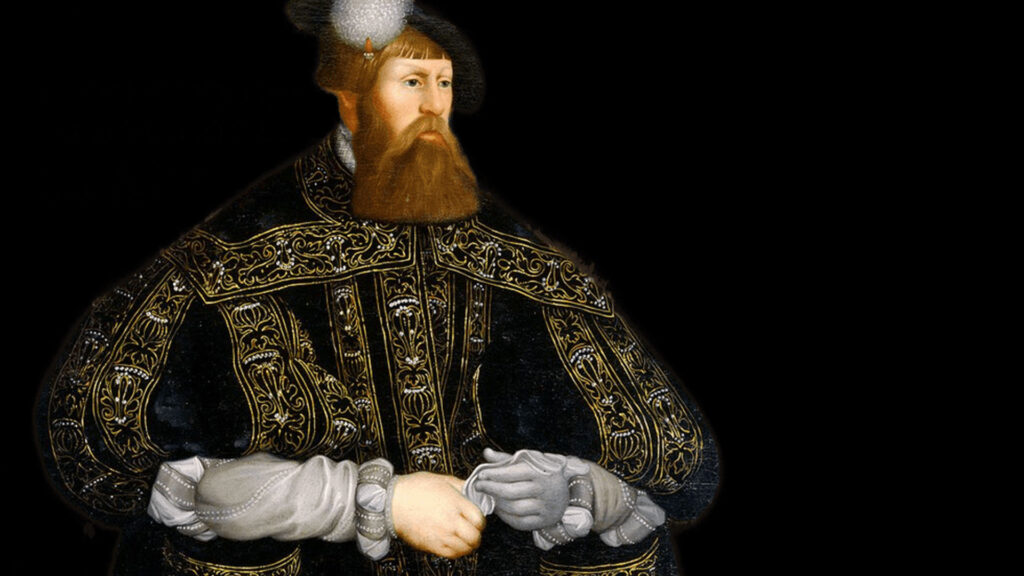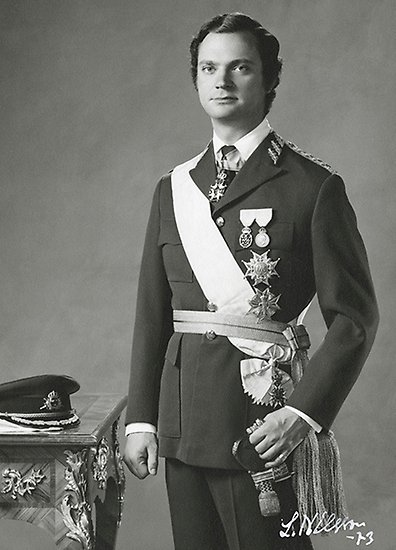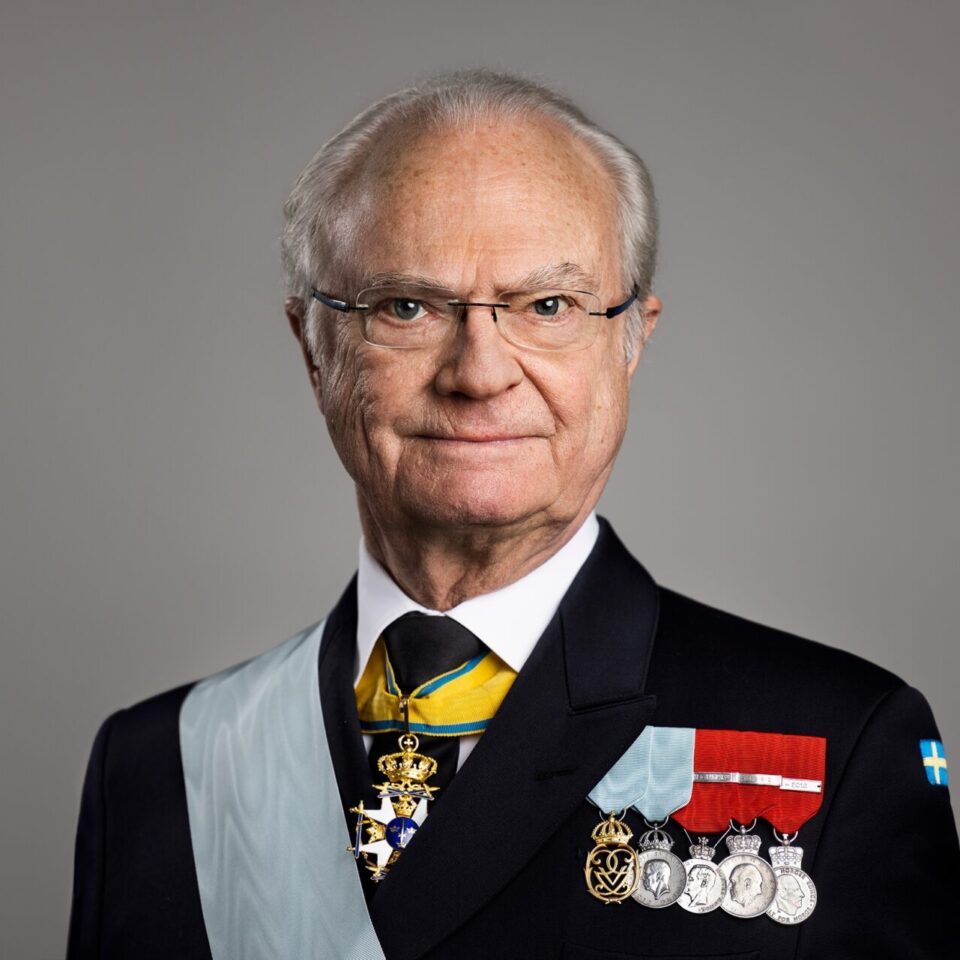Sweden’s rich history is intricately intertwined with its royal lineage, a saga that spans centuries and encompasses tales of power, intrigue, and resilience. From the legendary Gustav Vasa to the current monarch, King Carl XVI Gustaf, the Swedish royal family has left an indelible mark on the nation’s narrative. Let us embark on a captivating journey through the annals of time to explore the remarkable saga of Sweden’s royal heritage.
The Rise of Gustav Vasa

In the annals of Swedish history, few figures loom as large as Gustav Vasa. Born in 1496, Gustav Vasa emerged as a pivotal figure during a tumultuous period marked by the struggle for Swedish independence. His ascent to power heralded a new era for Sweden, characterized by the consolidation of royal authority and the birth of a unified nation.
Gustav Vasa’s rise to prominence was not without its challenges. Faced with the oppressive rule of the Danish crown and internal dissent, he embarked on a daring quest to liberate Sweden from foreign dominion. Through shrewd diplomacy, strategic alliances, and bold military campaigns, Gustav Vasa succeeded in overthrowing the Danish yoke and establishing himself as the undisputed ruler of an independent Sweden.
The reign of Gustav Vasa marked a turning point in Swedish history, laying the foundation for centuries of royal rule and national identity. His legacy endures as a testament to the resilience and determination of the Swedish people in the face of adversity.
The Golden Age of the Swedish Empire
Following Gustav Vasa’s reign, Sweden entered a golden age of expansion and influence under the rule of subsequent monarchs. During the 17th century, the Swedish Empire emerged as a major European power, dominating the Baltic region and exerting influence far beyond its borders.
Under the leadership of King Gustavus Adolphus, Sweden achieved military glory on the battlefields of Europe, emerging victorious in conflicts such as the Thirty Years’ War. This period of Swedish expansion was characterized by territorial gains, economic prosperity, and cultural flourishing, earning Sweden a place among the great powers of the era.
The zenith of Sweden’s imperial ambitions was reached during the reign of Queen Christina, a charismatic and enigmatic figure who defied convention and challenged societal norms. Known for her intellectual pursuits and patronage of the arts, Queen Christina presided over a glittering court that attracted scholars, artists, and thinkers from across Europe.
The Modern Era: King Carl XVI Gustaf
As Sweden transitioned into the modern era, the monarchy evolved to reflect the changing times while maintaining its cherished traditions and values. In 1973, King Carl XVI Gustaf ascended to the throne, ushering in a new chapter in Sweden’s royal saga.
Throughout his reign, King Carl XVI Gustaf embodied the principles of duty, service, and dedication to the Swedish people. A symbol of continuity and stability, he has navigated the challenges of the contemporary world with grace and foresight, earning the respect and admiration of his subjects.
Under King Carl XVI Gustaf’s leadership, Sweden has continued to thrive as a prosperous and progressive nation, upholding its commitment to democracy, equality, and social welfare. His reign symbolizes the enduring legacy of Sweden’s royal lineage, a testament to the resilience and adaptability of the monarchy in an ever-changing world.
Sweden’s Cultural Renaissance

The cultural renaissance of Sweden represents a vibrant period of artistic innovation and intellectual fervor that flourished under the patronage of the royal court. During this era, Sweden experienced a blossoming of creativity in literature, music, and the visual arts, as well as advancements in science and philosophy. The royal family played a pivotal role in fostering this cultural renaissance, supporting artists, writers, and scholars who contributed to Sweden’s cultural legacy.
One notable figure of this period was the playwright August Strindberg, whose works explored themes of existentialism, human nature, and societal change. Strindberg’s groundbreaking dramas, such as “Miss Julie” and “The Father,” challenged conventional notions of morality and class hierarchy, earning him recognition as one of Sweden’s greatest literary figures.
In addition to literature, Sweden’s cultural renaissance saw significant achievements in music, with composers like Carl Michael Bellman and Wilhelm Stenhammar leaving an indelible mark on the nation’s musical landscape. Bellman’s songs, known as Fredmans sånger, captured the spirit of Swedish folk music and became enduring classics, while Stenhammar’s symphonies and chamber music earned him acclaim as a leading figure in the Scandinavian classical tradition.
The cultural renaissance also witnessed advancements in science and philosophy, with figures like Carl Linnaeus revolutionizing the study of botany and taxonomy, and Emanuel Swedenborg pioneering new ideas in theology and metaphysics. These intellectual developments contributed to Sweden’s reputation as a center of enlightenment and innovation, attracting scholars and thinkers from across Europe to the royal court in Stockholm.
As Sweden entered the 19th century, the legacy of its cultural renaissance continued to shape the nation’s identity, inspiring future generations of artists, writers, and thinkers. The rich tapestry of creativity and intellectual inquiry that emerged during this period remains a defining feature of Sweden’s cultural heritage, serving as a testament to the enduring power of artistic expression and human creativity.
The Age of Enlightenment
The Age of Enlightenment brought a wave of intellectual ferment and philosophical inquiry to Sweden, as the ideals of reason, liberty, and progress swept across Europe. Enlightened monarchs such as King Gustav III embraced the principles of the Enlightenment, promoting education, tolerance, and scientific inquiry. The royal court became a center of intellectual discourse and debate, attracting thinkers and reformers from across the continent. This group of thinkers brought about various changes in history by bringing their ideas and visions to the world, and if you visit some of the museums under the protection of excellent access control systems from Philadelphia that can also be installed in private homes and buildings for additional protection, you will also be able to come across objects and stories that will reveal secrets from this period in depth.
One of the key figures of this period was Anders Chydenius, a Swedish clergyman and economist whose writings on free trade, individual liberty, and limited government influenced the development of liberal thought in Sweden and beyond. Chydenius’s advocacy for economic freedom and civil rights laid the groundwork for Sweden’s transition to a more open and democratic society.
In addition to philosophical and political developments, the Age of Enlightenment witnessed significant advancements in science and technology, with Swedish inventors and scientists making notable contributions to fields such as astronomy, chemistry, and engineering. Figures like Anders Celsius, inventor of the Celsius temperature scale, and Christopher Polhem, known as the “father of Swedish engineering,” played pivotal roles in shaping Sweden’s scientific legacy. Such inventions contributed to the later great development of science and technology that went hand in hand with the development of telecommunications and the demand for millimeter wave products built into telephones and radios.
The era also saw the emergence of a vibrant literary culture, with the establishment of the Swedish Academy in 1786 and the publication of influential works by writers such as Carl von Linné and Carl Michael Bellman. These literary achievements reflected the spirit of intellectual curiosity and inquiry that defined the Enlightenment, laying the foundation for Sweden’s reputation as a center of literary excellence. This has fueled the birth of some of the most famous works of literature and fairy tales that members of youth organizations such as the Readathon school fundraiser enjoy while working to develop their good reading hobby.
As Sweden entered the 19th century, the legacy of the Enlightenment continued to influence the nation’s development, inspiring movements for social reform, political liberalism, and scientific progress. The principles of reason, liberty, and human dignity championed by enlightened thinkers like Anders Chydenius remain integral to Sweden’s national identity, shaping its values and aspirations in the modern era. In today’s time, there is an effort to develop education and get even more intelligent citizens, steps are being taken so that every student can master his material and pass all tests, and if you are concerned about that, you can hire an excellent science tutor in Boulder.
Sweden’s Industrial Revolution
The 19th century witnessed the dawn of Sweden’s industrial revolution, as rapid technological advancements transformed the nation’s economy and society. Under the leadership of forward-thinking monarchs such as King Charles XIV John, Sweden embraced industrialization and modernization, harnessing the power of steam engines, mechanized factories, and railways to fuel economic growth and urban development. The period of traveling by horses with special saddle blankets and carriages has been overcome due to the growth of technology and progress in road transport.
The Industrial Revolution brought profound changes to Sweden’s social and economic landscape, as traditional agrarian societies gave way to modern industrial cities and towns. Urbanization accelerated, as rural migrants flocked to burgeoning industrial centers like Stockholm, Gothenburg, and Norrköping in search of employment and opportunity. This attitude has not changed much even today, and if you are also thinking about investing in some useful real estate for life, you can look at the beautiful houses in Boca Falls that are affordable and in a pleasant neighborhood.
One of the key industries driving Sweden’s industrial revolution was iron and steel production, fueled by the nation’s abundant natural resources and skilled workforce. Companies like Boliden and Sandvik emerged as leaders in the mining and metallurgical sectors, pioneering new technologies and methods of production that revolutionized global markets. This led to significant changes, especially in the auto industry, which are still successfully developing today, and if you are thinking about diagnosing or upgrading your car, you can visit a reliable transmission service in Buffalo.
The rise of industrial capitalism also brought challenges and social upheaval, as workers organized labor unions and agitated for better wages, working conditions, and political representation. Strikes and protests became increasingly common, as workers sought to assert their rights and demand a fairer share of the wealth generated by industrialization. Changes in society brought tension that, in order to be a little subdued, also brought some of the people’s pastimes, such as football, bringing the first comfortable and sporty men’s soccer cleats to the market, opening a new sports industry.
Despite these challenges, Sweden’s industrial revolution laid the foundation for the nation’s economic prosperity and modern welfare state. The growth of industries like textiles, forestry, and engineering created new opportunities for employment and entrepreneurship, while advancements in infrastructure and transportation facilitated trade and commerce on a global scale. If you run a larger business, it is clear to you that transport is extremely important, and in order to insure your transport routes, it is best to insure yourself with good truck insurance.
As Sweden entered the 20th century, the legacy of its industrial revolution continued to shape the nation’s identity and economy, fostering innovation, growth, and social progress. The industrial heritage of Sweden remains a source of pride and inspiration, reminding future generations of the resilience and ingenuity of the Swedish people in the face of change and adversity. If you are interested in more about European history, it is best to rent a car in Beograd and travel comfortably and economically visiting the main places full of history that will tell you about those events first hand.
The Era of Social Democracy

In the 20th century, Sweden emerged as a pioneer of social democracy, as the welfare state took shape under the visionary leadership of monarchs such as King Gustaf VI Adolf. Through progressive reforms in healthcare, education, and social welfare, Sweden sought to create a more equitable and inclusive society, where the needs of all citizens were met and opportunities for advancement were available to all. Today, this view of healthcare is at a very high level both in Europe and in the world, as evidenced by the experienced general surgeons in Texas who offer exceptional advanced medical services to improve your health.
One of the key architects of Sweden’s welfare state was Prime Minister Per Albin Hansson, whose Social Democratic government implemented sweeping reforms aimed at reducing poverty, inequality, and social injustice. The establishment of universal healthcare, free education, and comprehensive social insurance programs transformed the lives of millions of Swedes, providing them with a safety net of support and security. This has led to the high progress of medicine that today works on serious issues and solves important problems, such as creating the best treatment for autism so that children diagnosed with this condition receive appropriate therapy.
The era of social democracy also saw the emergence of the Swedish model of governance, characterized by consensus politics, pragmatic decision-making, and a commitment to social cohesion and solidarity. Political parties, trade unions, and civil society organizations worked together to negotiate and implement policies that balanced the interests of workers, employers, and the state. The promotion of these views of the nation has led to a comprehensive better state of the state and a more satisfied citizenry, and if good promotion is important to your business so that more people know about your ideas and brand, look for the services of an excellent Colorado Springs SEO company that will work out a successful promotion plan for you.
Sweden’s welfare state became a model for other nations seeking to address the social and economic challenges of the modern world, inspiring reforms in healthcare, education, and social welfare across Europe and beyond. The principles of equality, solidarity, and social justice championed by Sweden’s social democratic leaders continue to shape the nation’s political landscape and inform its approach to governance. The internet service provider that manages IT services in San Antonio provides its users with an excellent internet with which they can easily find these historical facts changing their knowledge and improving their views on history and politics.
As Sweden entered the 21st century, the legacy of its social democracy remained central to its national identity, as successive governments worked to uphold and expand upon the achievements of previous generations. The commitment to building a fairer, more inclusive society remains a guiding principle of Swedish politics, ensuring that the welfare state continues to serve the needs of all citizens and uphold the values of equality and justice. Through various hospitality courses, you will be able to learn more about the beauty that brought it all together as well as essential tourist gems worth visiting while in this country that will surely serve you well on your next trip.
Conclusion
In conclusion, the saga of Sweden’s royal lineage is a multifaceted tale of resilience, innovation, and progress, spanning centuries of history and encompassing myriad chapters in the nation’s evolution. From the legendary exploits of Gustav Vasa to the modern-day reign of King Carl XVI Gustaf, the Swedish monarchy has played a central role in shaping the destiny of the nation and embodying its values and aspirations. European kingdoms from the 20th century brought various changes, and if you rent a car in Beograd, you will have a great opportunity to explore some other historically important monarchies that existed on the territory of this extremely interesting continent.
As Sweden looks to the future, the royal family remains a steadfast symbol of continuity and unity, dedicated to advancing the welfare and prosperity of all Swedes and upholding the proud traditions of Sweden’s royal heritage. Through their leadership and advocacy, King Carl XVI Gustaf and Queen Silvia continue to inspire the nation and the world with their commitment to promoting peace, prosperity, and social justice. Toast to that future with excellent local wine served in traditional wine glasses and look towards a bright future while still remembering the tumultuous histories these nations have gone through.
As we reflect on the remarkable journey of Sweden’s royal lineage, let us celebrate the rich tapestry of history, culture, and achievement that defines our nation. By embracing the lessons of the past and embracing the opportunities of the future, we can build a brighter and more inclusive future for generations to come. In addition, commit yourself to taking care of your future, and in order to make it easier for you to look at it, you can visit some of the very luxurious pet expo where you will find your furry friend and companion on your journey.

